請教一下
在Proxmox VE的Line群,有人提到Server記憶體插滿會被降頻運作!?
DDR4最低的頻率是2133,還會被降到1600!?詳見截圖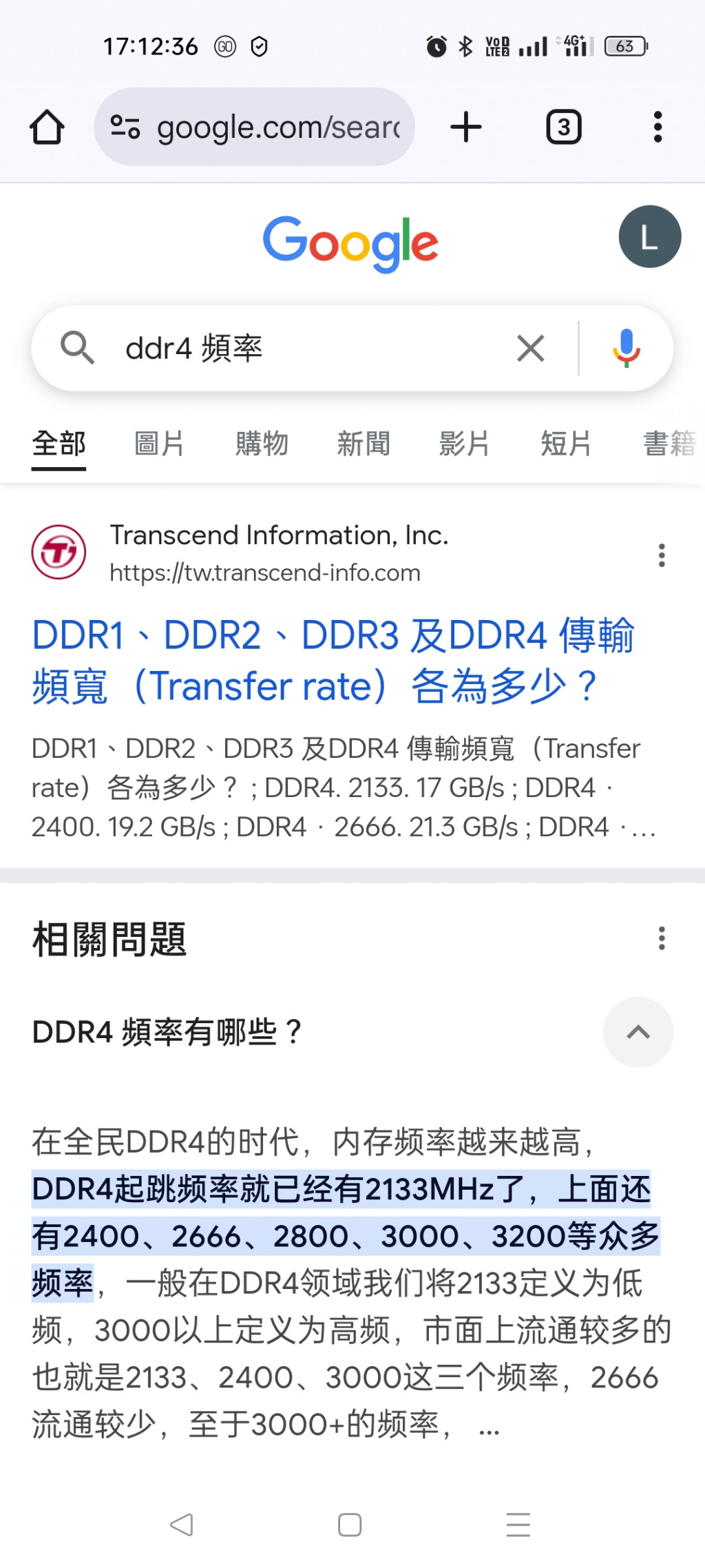
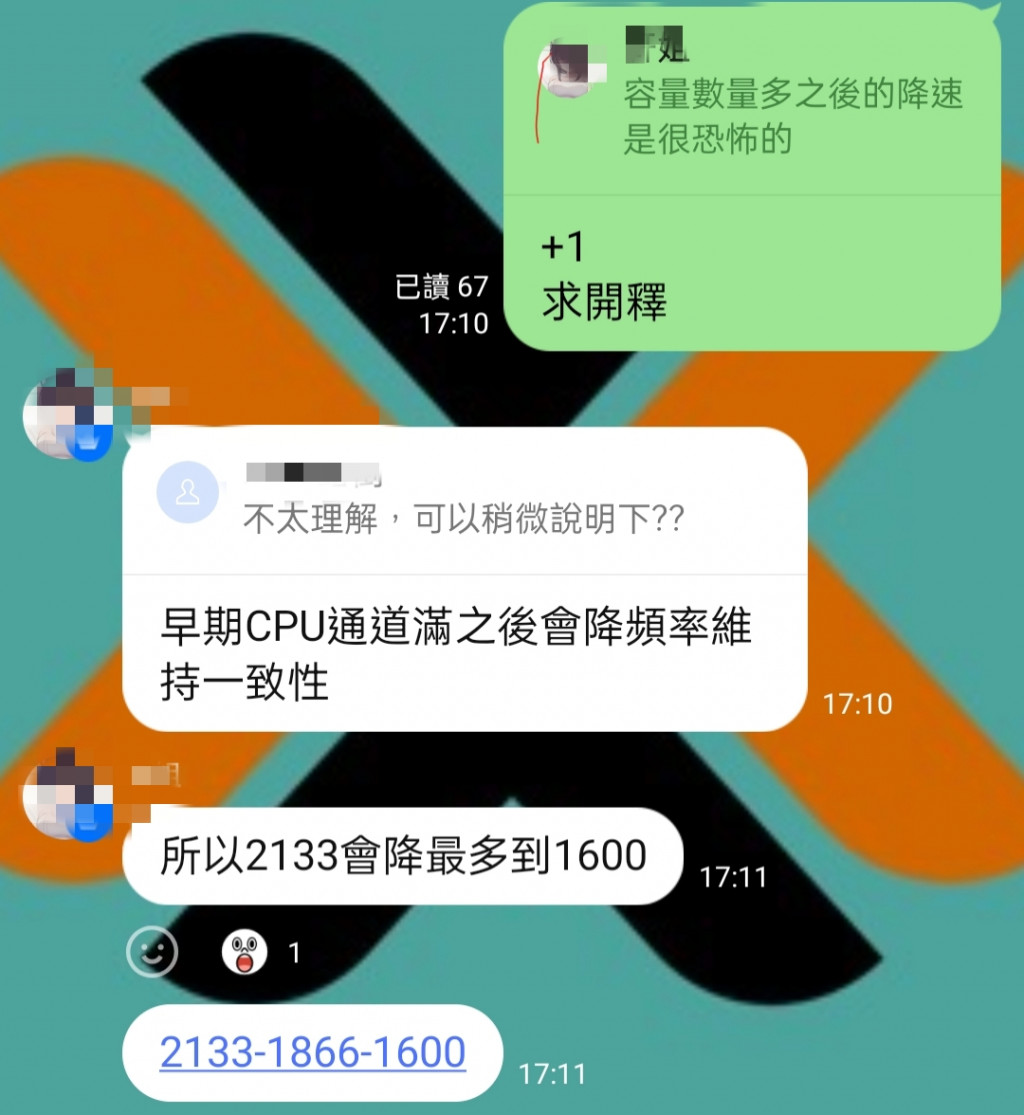
經查Dell R720手冊,詳見截圖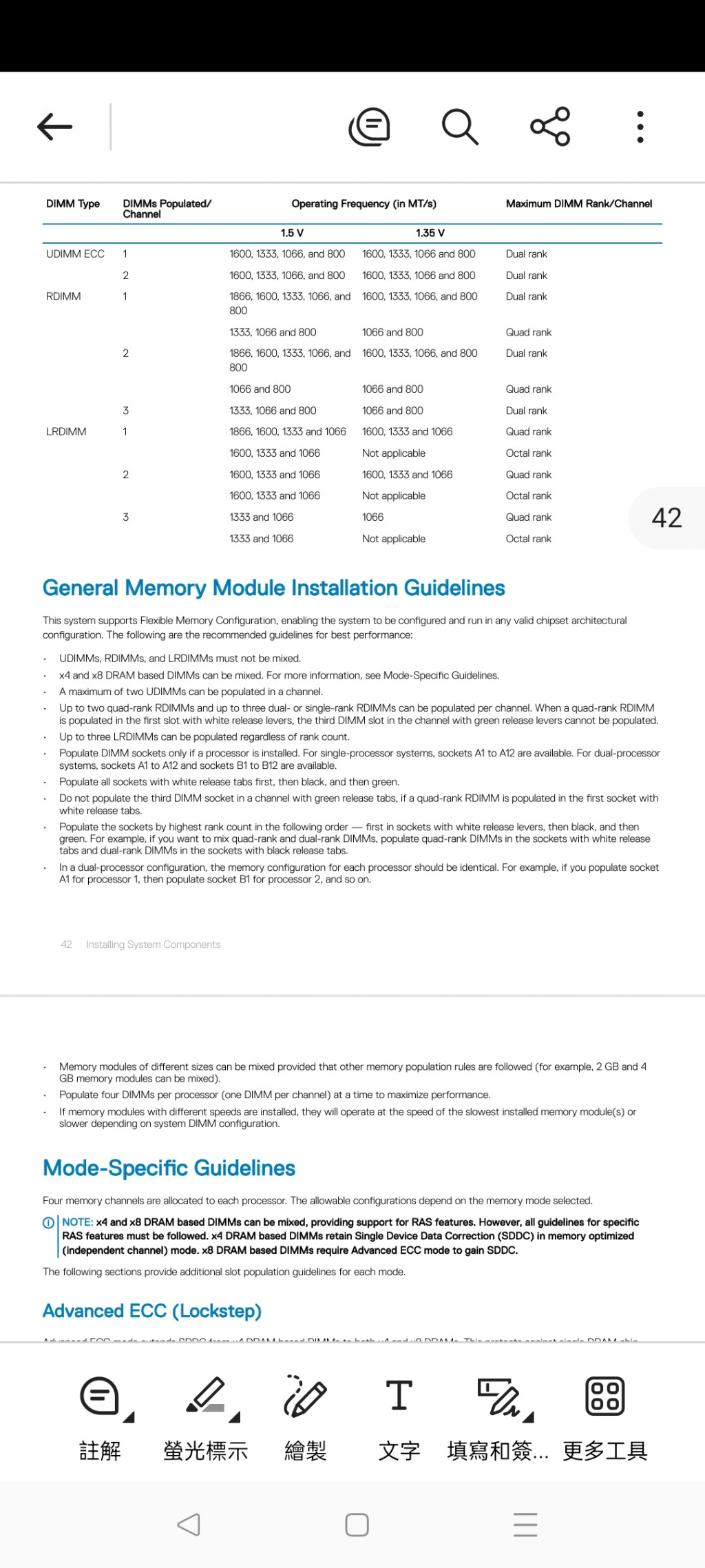
節錄部份內容
英文部份
This system supports Flexible Memory Configuration, enabling the system to be configured and run in any valid chipset architectural configuration. The following are the recommended guidelines for best performance: • UDIMMs, RDIMMs, and LRDIMMs must not be mixed. • x4 and x8 DRAM based DIMMs can be mixed. For more information, see Mode-Specific Guidelines. • A maximum of two UDIMMs can be populated in a channel. • Up to two quad-rank RDIMMs and up to three dual- or single-rank RDIMMs can be populated per channel. When a quad-rank RDIMM is populated in the first slot with white release levers, the third DIMM slot in the channel with green release levers cannot be populated. • Up to three LRDIMMs can be populated regardless of rank count. • Populate DIMM sockets only if a processor is installed. For single-processor systems, sockets A1 to A12 are available. For dual-processor systems, sockets A1 to A12 and sockets B1 to B12 are available. • Populate all sockets with white release tabs first, then black, and then green. • Do not populate the third DIMM socket in a channel with green release tabs, if a quad-rank RDIMM is populated in the first socket with white release tabs. • Populate the sockets by highest rank count in the following order — first in sockets with white release levers, then black, and then green. For example, if you want to mix quad-rank and dual-rank DIMMs, populate quad-rank DIMMs in the sockets with white release tabs and dual-rank DIMMs in the sockets with black release tabs. • In a dual-processor configuration, the memory configuration for each processor should be identical. For example, if you populate socket A1 for processor 1, then populate socket B1 for processor 2, and so on.
Memory modules of different sizes can be mixed provided that other memory population rules are followed (for example, 2 GB and 4 GB memory modules can be mixed). • Populate four DIMMs per processor (one DIMM per channel) at a time to maximize performance. • If memory modules with different speeds are installed, they will operate at the speed of the slowest installed memory module(s) or slower depending on system DIMM configuration.
應該是提到如果有混插,會以最慢的記憶體頻率運作
不知我的理解是否錯誤!?有透過Google翻譯

伺服器的記憶體配置都有他們專門的設計,除了不同規格最好不要混插差之外,早期(三通道)是記憶體可不可以插滿,都有限制。
我碰過的HP DL380 G8(這個十多年前了),當初他的設計就是如果你要Memory最佳效能,就是只能三通道只插二條RAM,第三個Slot要空下來,不然插滿了就是降頻。
當初客戶的糾結點不是記憶體有沒有插滿,是認為我們給的記憶體規格不對。明明是買1866怎麼跑出來都是1066。
後來翻文件給客戶,證明插滿就是會降頻。
還怪我們怎麼沒有跟他先說明,最後記憶體原本8G x18條,全部換成16G x12條~
我節錄一小段說明:
• While the industry supports DDR3-1866 RDIMM at 1.5 V at one DIMM per channel, our ProLiant Gen8 servers support DDR3-1866 RDIMM up to two DIMMs per channel at 1866 MT/s running at 1.5 V.
Our ProLiant Gen8 v2 servers support DDR3-1600 LV RDIMM up to two DIMMs per channel at 1600 MT/s running at 1.35 V. This equates to up to 20 percent less power at the DIMM level with no performance penalty.
HPE SmartMemory now supports DDR3-1866 RDIMMs:
• 1 DPC @1866 at 1.5 V
• 2 DPC @1866 at 1.5 V
• 3 DPC @1066 at 1.5 V
傻眼貓咪...
HP官方手冊!
看來還真有其事...
我再確認一下我的Dell R720(記憶體插滿64Gx24)有沒有被降頻!?
以下內容是我問AI關於 RAM 降頻是在那個世代解決的,AI的回答,你參考一下 (先說一下,我沒有去查證):
從 HPE ProLiant Gen9 開始,HPE 引入了新的記憶體技術和改進的記憶體控制器設計,這些改進顯著減少了記憶體降頻的情況。具體來說:
支援 DDR4 記憶體,記憶體控制器設計更加先進。
在插滿記憶體通道的情況下,降頻的情況大幅減少。
通常情況下,即使插滿記憶體通道,記憶體頻率也能保持在較高的水平(例如 2133 MT/s 或 2400 MT/s),具體取決於 CPU 和記憶體配置。
進一步優化了記憶體控制器和主機板設計。
支援更高頻率的 DDR4 記憶體(例如 2666 MT/s 或 2933 MT/s)。
在大多數配置下,插滿記憶體通道不會導致顯著的降頻。
採用了更先進的記憶體技術(如 DDR4-3200 或更高)。
記憶體控制器的設計進一步改進,幾乎消除了因插滿記憶體通道而降頻的情況。
從 HPE ProLiant Gen9 開始,HPE 的伺服器設計已經顯著改善了記憶體降頻的問題。具體來說:
Gen9 是第一個大幅減少降頻問題的世代,特別是在使用 DDR4 記憶體的情況下。
Gen10 及之後的世代 進一步優化了記憶體控制器的設計,幾乎完全解決了這一問題。
經測試Dell R720,插滿64Gx24,總容量達到1536G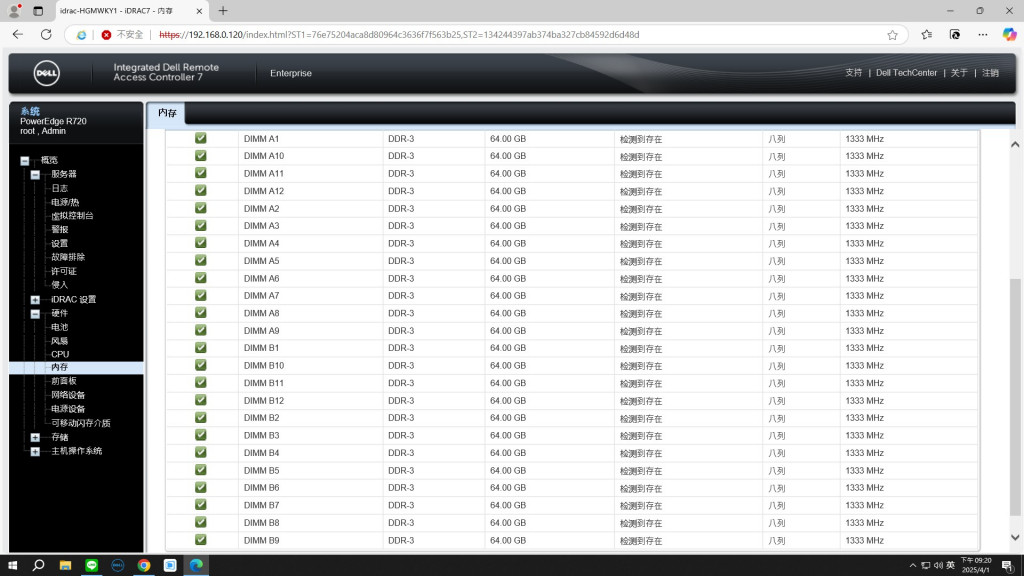
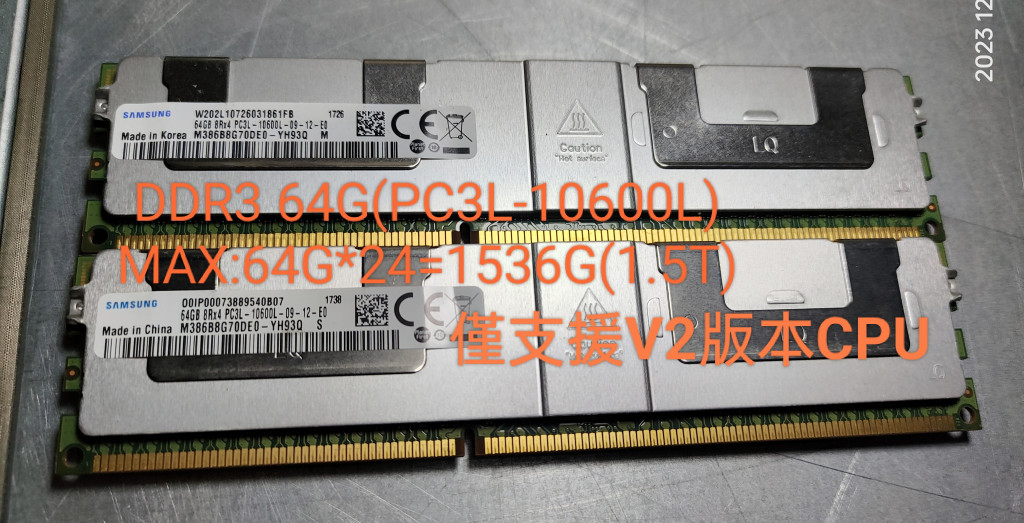
並沒有發生降頻運作的現象,但發生電壓被提升至1.5V(正常電壓是1.35V)
另在R730插滿16Gx24(顆粒數量、頻率不同),才發生降頻運作的現象
因此懷疑是否在混插的狀態下,才會被降頻!?